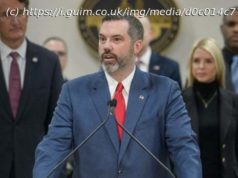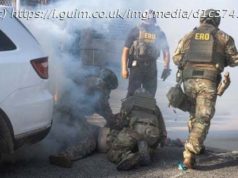Kids are more likely to be killed driving to school than shot while there. That doesn’t mean we shouldn’t try and prevent them.
James Joyner
·
Saturday, March 10,2018
·
1 comment
David Ropeik, an instructor at Harvard and author of How Risky Is It, Really? Why Our Fears Don’t Always Match the Facts, takes to the op-ed pages of WaPo to argue, “ School shootings are extraordinarily rare. Why is fear of them driving policy? ”
We’ve had much the same argument over roughly the same period after the 9/11 attacks. From an actuarial standpoint, we’ve way over-invested in countering terrorism compared to the actual risk Americans face from that phenomenon. But, as Ropeik acknowledges, there’s a good reason for that:
These are not apples-to-apples comparisons. It is indeed foolish to avoid going swimming over the risk of sharks or to drive rather than fly if you’re doing it out of fear. Commercial airline crashes and shark attacks are not only exceedingly rare but, from the perspective of travelers and swimmers, completely random. School shootings and terrorist attacks, while also quite uncommon, are actions of human agency.
Traffic fatalities are a leading cause of death. Quite reasonably, then, we do quite a bit to minimize them. We enact safety regulations on manufacturers, limit the speed at which people can drive, require licensing, prohibit driving while intoxicated, and try to engineer roads to make crashes less likely. Whether we should do even more from a cost-benefit standpoint is both beyond my expertise and outside the scope of this essay. But, from the standpoint of a parent seeking to get their kid to school, buckling them into the seats of a vehicle equipped with modern safety equipment and being reasonable careful while driving is about all one can reasonably do to mitigate a relatively small risk.
The prospect that some lunatic will come into their school and shoot them is a completely different sort of risk. Do I spend a lot of time fearing that unlikely event? No. Do I want to turn my girls’ school into a prison, or even an airport? No. But I’m in favor of the schools taking prudent security measures to keep people who aren’t supposed to be there out.
Ropeik is probably right here:
Half a century ago, the activist Ralph Nader spotlighted the lack of attention to safety in the automobile industry. That sparked a conversation that led to a variety of reforms. When I was in high school, a group of mothers whose kids had been killed by drunk drivers sparked a conversation that changed the way we think about that phenomenon. Were there over-reactions? Sure. But also a lot of progress.
Similarly, because they’re such shocking events, school shootings spark national conversations. Sadly, because they have become so common, it’s been an ongoing conversation. And, certainly, one that has centered on the common denominator of guns. But they’ve also spotlighted bullying, depression, and other issues highlighted by the investigations.
It may well be that all of these reactions have been irrational. Maybe there were other issues where a comparable investment of resources could have saved even more lives. But that’s not how society works.
Yes, there are downsides to this. As Ropeik rightly notes:
But, frankly, I don’t know what to do with that. Should news outlets be less sensationalistic in their reporting? Sure. But the axiom, “If it bleeds, it leads” is hardly a new one. Indeed, Ropeik more-or-less acknowledges the futility of his concern:
Good luck with that.
I have said for some years now that part of the growing-up experience that very few adults understand is the school lockdown drill and now the active-shooter drill. Millions of kids. Whole generation. Gotta have an effect.






